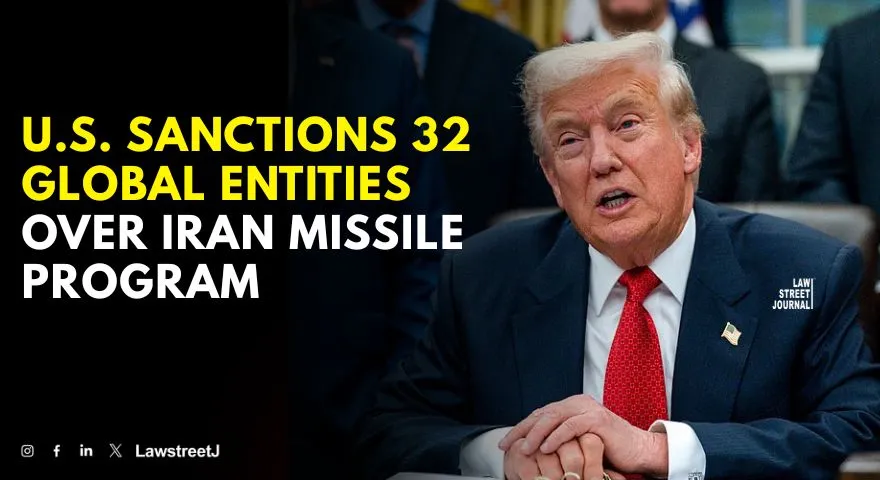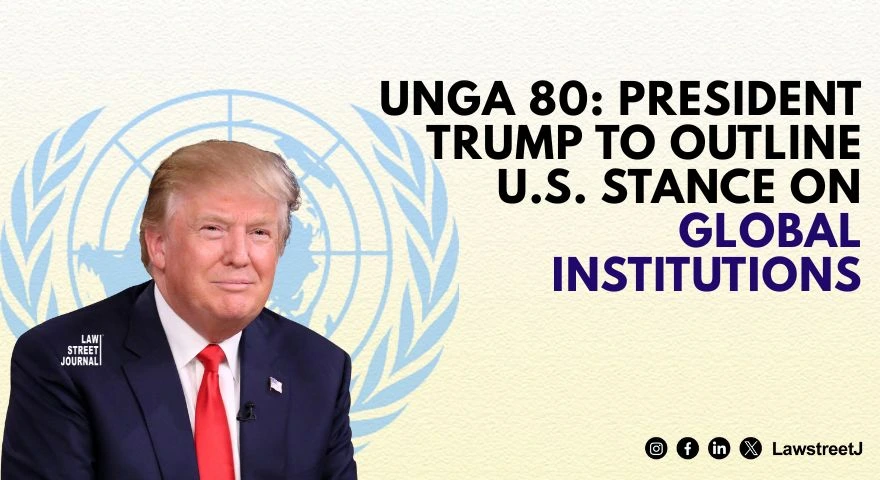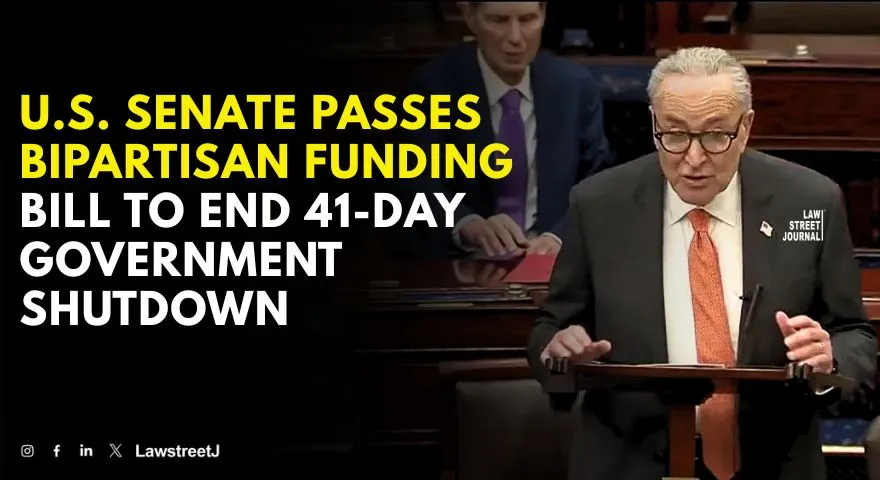United States: The United States government on November 12, 2025, announced sanctions on 32 entities and individuals across India, China, the United Arab Emirates, Turkey, Iran, and other jurisdictions for their alleged involvement in supporting Iran’s ballistic missile and unmanned aerial vehicle (UAV) programs. The move marks an escalation in Washington’s non-proliferation enforcement measures aimed at disrupting Tehran’s weapons-development networks. The designations were made under Executive Order 13382, which targets proliferators of weapons of mass destruction and those assisting them. The action was coordinated by the U.S. Department of the Treasury’s Office of Foreign Assets Control (OFAC), alongside the State Department.
According to an official statement from the Treasury Department, the listed entities were involved in supplying dual-use materials, sensitive technologies, and financial or logistical support to Iran’s missile and UAV production chains. These activities were cited as violations of U.S. sanctions law and international non-proliferation commitments, particularly United Nations Security Council Resolution 2231, which restricts Iranian ballistic missile activities. Among those sanctioned is Farmlane Private Limited, an India-based company allegedly connected to Marco Klinge, a UAE-based firm also named in the action. The Treasury Department alleged that Farmlane facilitated procurement and financial transactions on behalf of Klinge, which were subsequently linked to Iran’s efforts to obtain missile-related equipment and materials.
Under the sanctions, all U.S.-based assets of the designated individuals and firms are frozen. American citizens and companies are prohibited from conducting any form of transaction with them. The Treasury also warned that secondary sanctions could be applied to foreign financial institutions found to have knowingly facilitated major dealings with these sanctioned entities.
Strategic and Diplomatic Context
The latest sanctions are part of Washington’s continued campaign to limit Iran’s access to advanced weapons technology. U.S. officials said the measures were intended to cut off procurement routes that Iran has been using to advance its missile and drone-development efforts. John K. Hurley, the Under Secretary for Terrorism and Financial Intelligence, stated: “Iran’s missile proliferation activities undermine global stability. These sanctions demonstrate our determination to disrupt the networks that enable Tehran’s weapons development.”
The targeted procurement networks reportedly operate across Asia, Europe, and the Middle East, reflecting the global scale of supply chains supporting Iran’s military-industrial sector. Entities in Germany, Ukraine, Hong Kong, and Turkey were also sanctioned for allegedly providing chemical compounds, electronic components, and mechanical parts used in missile assembly.
The United States emphasized that the new restrictions align with its broader non-proliferation strategy and reaffirm its stance following the U.S. withdrawal from the Joint Comprehensive Plan of Action (JCPOA) in 2018. Since then, Washington has pressed for the reimposition of UN sanctions on Iran, arguing that Tehran’s missile activities continue to contravene the restrictions outlined under UNSCR 2231. Officials further highlighted that Iran’s reliance on front companies and overseas intermediaries allows it to evade prior sanctions. The new designations aim to close these gaps and block the flow of components and financing essential to Iran’s defense programs.
Involvement of Indian Entity and Domestic Legal Implications
At the time of reporting, the Government of India has not released an official statement on the designation of Farmlane Private Limited. However, its inclusion in the sanctions list has drawn attention to India’s export-control framework and compliance obligations under domestic and international law. Legal experts noted that Indian firms engaged in global trade are subject to scrutiny under the Foreign Exchange Management Act (FEMA) and India’s export-control regime, particularly where dual-use goods are concerned.
Should evidence emerge linking the company to missile-related procurement, the matter could invoke provisions of the Weapons of Mass Destruction and Their Delivery Systems (Prohibition of Unlawful Activities) Act, 2005. The sanctions, while binding under U.S. law, do not automatically constitute legal culpability within India unless corroborated by domestic investigations. However, analysts noted that the designation may affect the firm’s international financial transactions, access to banking systems, and supply-chain relationships.
The U.S. Treasury has urged all partner nations to take parallel steps to restrict Iran’s access to sensitive technologies. Washington stated that coordinated enforcement across jurisdictions is critical to prevent Iran from reconstructing alternative procurement routes through intermediaries or front companies. This round of designations follows a series of similar actions taken over the past year as part of the U.S. administration’s intensified focus on countering Iran’s missile capabilities. Officials noted that Iran has continued testing medium-range ballistic missiles and deploying armed UAVs, which they say pose risks to regional stability and commercial navigation in the Middle East.
The Treasury’s announcement also reaffirmed the United States’ commitment to work with allies in implementing stringent export controls and financial monitoring mechanisms. By disrupting the flow of raw materials and technical inputs, the administration aims to prevent further progress in Iran’s missile programs.
The sanctions are also expected to have implications for diplomatic engagement with affected countries. Washington has maintained that these measures are not intended to penalize partner nations but to encourage tighter compliance and monitoring of trade involving sensitive or dual-use goods.
The sanctions announced on November 12, 2025, underscore Washington’s renewed effort to dismantle the international networks supporting Iran’s missile and UAV development. By targeting entities across multiple regions — including India, China, and the UAE — the United States has highlighted the global scope of procurement operations that sustain Tehran’s weapons programs. For India, the designation of Farmlane Private Limited brings attention to the importance of export-control vigilance and compliance with non-proliferation norms. As investigations progress, the legal and diplomatic outcomes surrounding the named entities are likely to shape future cooperation on counter-proliferation policy, trade transparency, and international enforcement coordination.











